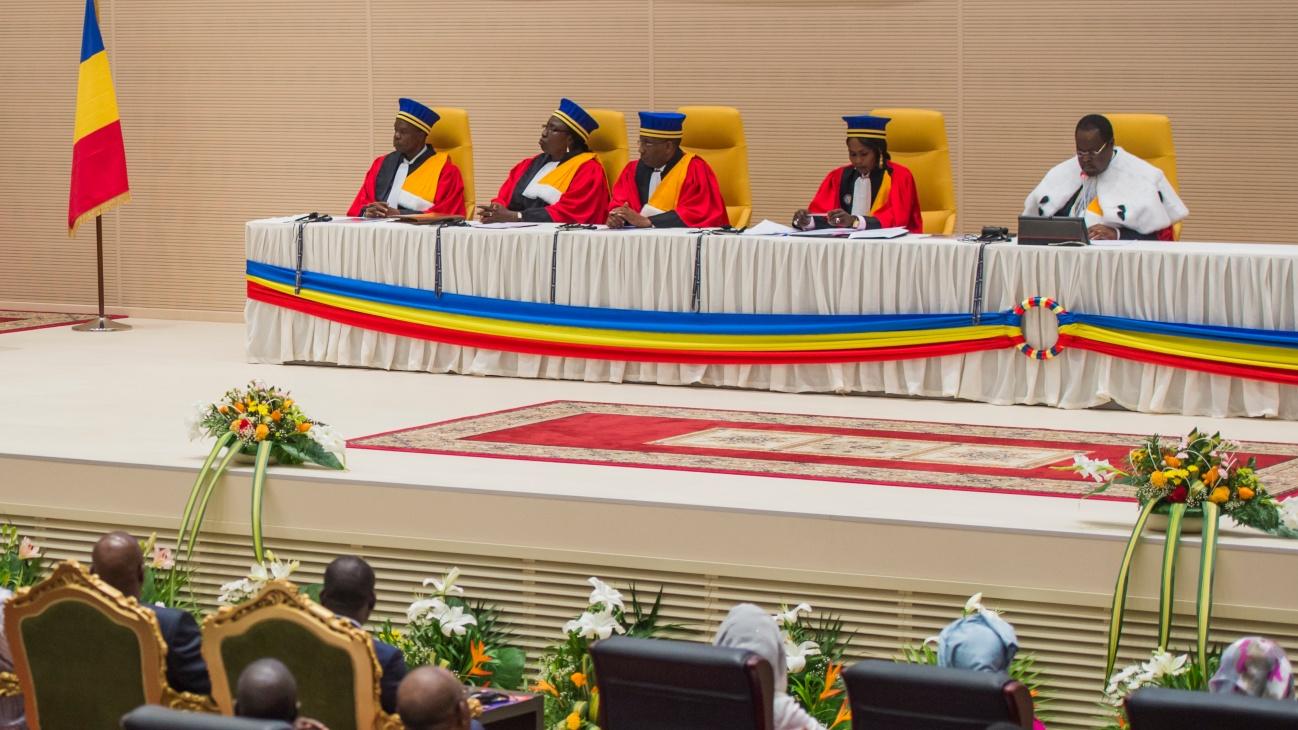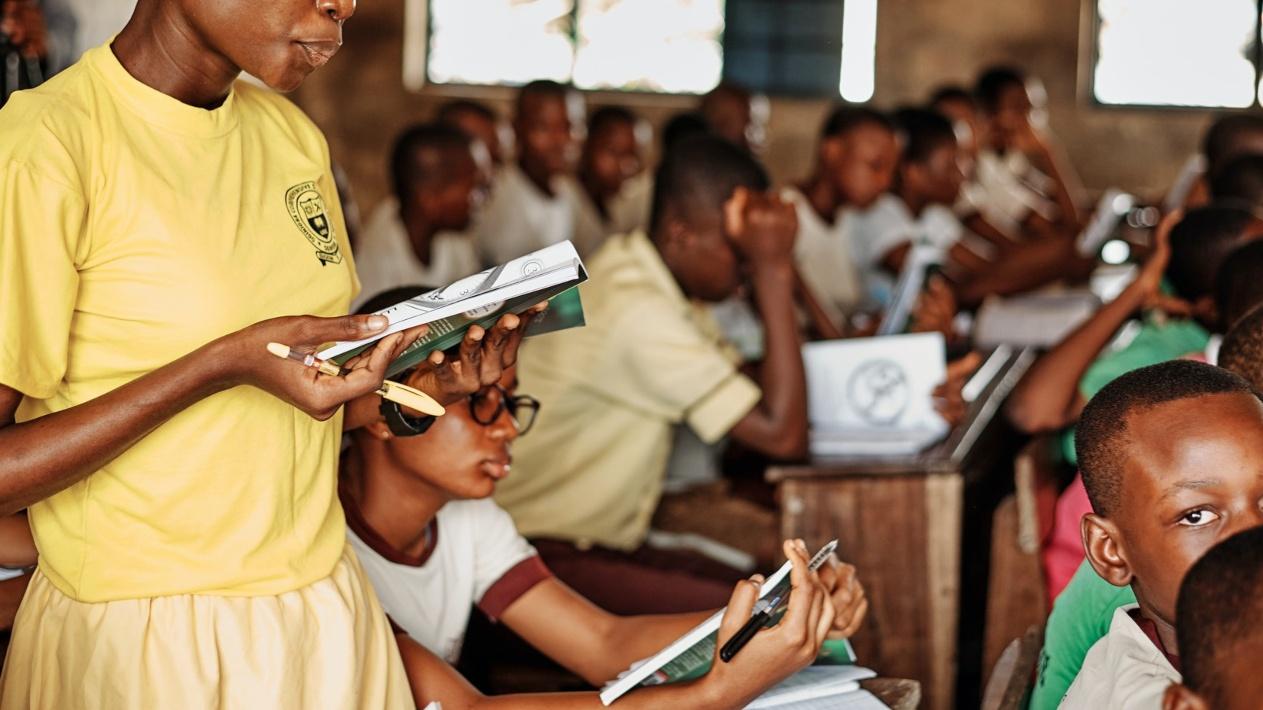The Sahel is at the heart of an unprecedented surge in violence and instability that is increasingly expanding into neighbouring West African countries. Jihadists are exploiting the Sahel governments’ inefficient responses to present themselves as better, alternative rulers. Addressing this spiralling extremism effectively must involve denying jihadists space to govern, writes Adele Orosz, to prevent people losing trust and confidence in the rule of law and democracy.
First it was Mali, then came Burkina Faso and Niger. Next in line, it seems, are Benin and Côte d’Ivoire. Violent extremism is spreading across the Sahel, having already affected people’s lives for almost a decade. Responses, so far, appear too little too late to curb terrorist activities in the region. There is strong evidence that the largest jihadist groups have plans to expand into the Gulf of Guinea.
What can be done to counter this threat and prevent further cycles of violence and trauma?
The spillover of violent extremism and terrorism
Mali is the epicentre of a jihadist insurgency in the Sahel. Since 2012, insecurity has expanded, the humanitarian situation deteriorated, and the country seems caught in an endless cycle of instability, as outlined in a recent briefing to the UN Security Council. The two main terrorist groups in the Sahel, Islamic State of the Greater Sahara (ISGS) and Jama’at Nusrat al-Islam wal-Muslimeen (JNIM/Katiba Macina), which is linked to al-Qaeda, as well as Ansar ul-Islam and the Islamic State West Africa Province (ISWAP), have all grown in capacity and geographical stretch. In neighbouring Burkina Faso and Niger, attacks by Islamists are on the rise, resulting in record numbers of displaced people, numbering 1.5 million in Burkina Faso alone. Across the Sahel, the surge in violence in 2021 forced half a million people to flee their homes.
Militants’ operations in Mali have spilled over into Burkina Faso’s northern regions of Soum and Oudalan, expanding to the South and East and threatening the capital Ouagadougou. In an ambush in Inata in November 2021, more than 50 gendarmes were killed – the deadliest single loss the army has suffered in six years of growing militant activities.
Attacks on civilians are equally brutal. By far the most atrocious attack occurred the same month in the northern village of Solhan where at least 160 people were killed and houses and the local market set ablaze. Burkina Faso’s political instability became more blatant at the end of January 2022 with another coup d’état. Deeply frustrated with a government incapable of addressing the spiralling terrorism and security crisis, the military seized control of the country. It had seen its first democratic elections only in 2015.
In Niger, the regions Tillabéry, Diffa and Tahoua are severely affected. Terrorists first spared civilians in an effort to woo them. But this has changed dramatically. Reports about farmers shot in their fields, people killed during prayers at Mosque and community leaders assassinated for refusing to cooperate are multiplying. The deadliest attack in Niger’s history occurred in Tahoua in March 2021, when militants on motorbikes riding through three villages gunned down 137 people. In the second half of 2021, more than 50 soldiers were killed in ambushes, fights or in attacks on military camps.
Sahel security forces are poorly equipped and lack the operational capacity to effectively confront these attacks. The despair at the relentlessness of the insurgency has at times produced awkward reactions.
Niger’s president, for example, made a rather unrealistic announcement to double the armed forces in the next few years. The Burkina Faso government, after the deadly attack in Solhan, shut down the internet for a week to prevent people from organising protests. Nevertheless, thousands across the country took to the streets, decrying the government’s failure to curb the Islamist violence. In Niger’s border regions, self-defence militias have been forming after troops abandoned the area due to large-scale attacks by jihadists. Burkina Faso has started resorting to ‘Defence Volunteers’. After 14 days of training, these volunteers are sent out on patrols and surveillance with arms. But instead of improving of the security situation, these acts of self-defence have rather spurred more killings.
The ongoing multinational missions in the Sahel (Barkhane/Takuba, Minusma, MNJTF, G5 Joint Forces) have to some extent stabilised some areas and at least in Mali prevented a ‘failed state’ scenario. But still, jihadist groups remain a dominant force, and they continue to expand into neighbouring countries.
In Benin, the northern regions Alibori, Borgou and Atacora, bordering Burkina Faso and Niger, recorded their highest incidents of jihadist activities in 2021. Terrorist and armed groups are reported to have a transitory and temporary presence in northern Benin, foremost for tactical hideout and procurement, while having their regular bases in neighbouring Sahel countries.
Côte d’Ivoire has been seen as a hideout and safe haven, with regular movements of terrorist groups from Mali to the country’s northwest. But following a joint army operation by Côte d’Ivoire and Burkina Faso against militants, a deadly reprisal attack on the army in Kafolo in June 2021 left more than a dozen troops dead. Shockingly to most Ivoirians, the country had turned into a theatre of jihadist fighting.
Ghana, Togo and Senegal, so far, have reported only a limited presence of jihadists, but illicit trade and smuggling in their border regions are likely to attract more militants.
Waning confidence in rule of law and democracy
Economic hardship, scarce resources, social exclusion, ethnic rivalries and a very weak state presence pave the way for a further expansion of extremist violence across West Africa. Both jihadists and criminal gangs thrive in lawless areas neglected by state institutions. This is often conspicuous in the countryside, far away from capital cities. The main Islamist groups, ISGS and JNIM, in search of recruits and supplies in ungoverned areas, appear to carve out mutually agreed-upon areas of influence, sometimes competing fiercely over the same territory.
Overwhelmed and overstretched security forces, themselves suffering many losses, have unlawfully killed civilians, as they are often unable to distinguish between friend and foe. Such human rights violations and extrajudicial killings add further fuel to the fire. As a consequence, recruitment by jihadists is less driven by ideological and religious reasons than exploiting this abuse of power, leading to the desire to take revenge for painful losses. The groups provoke ethnic feuds then offer protection, promising security and justice, as well as economic opportunities, while instigating hate and mistrust towards allegedly corrupt and misguided authorities.
Some community leaders are taking things into their own hands and seek local solutions with jihadist groups. This is happening in Burkina Faso, for example, in some of the hardest-hit regions in the northeast since mid-2020. In Nassoumbou, the community reached an agreement that people follow strict Islamic rules and provide support to militants in exchange for security concessions, such as allowing people to return to their villages and to impose less harassing check points. Sadly, community leaders see no alternative as support and help by state institutions is woefully missing.
The more terrorist groups force or lure people into extremism and violence, the more trust and confidence in the state and government is likely to be undermined. Alienation and resignation can easily follow, with populations becoming open to anti-democratic, radicalised structures that appear more capable of providing security, justice and organisation for people’s daily lives.
Denying violence and extremism space to govern
The various counterterrorism missions in the Sahel and across West Africa cannot effectively curb the spiralling crisis. They must be complemented by equally strong civilian socioeconomic efforts that consequentially strengthen rule of law and accountability. Interventions should focus on so-called pockets of instability, taking into account local conflict dynamics where perceptions of state absence and social and political marginalisation are greatest.
Given the vast geographic areas, identifying community-centred solutions are critical for addressing a frail social contract between citizens and formal state authorities, preventing jihadists from filling a perceived void of state weakness. One encouraging example is Ogossagou and 10 other villages in Mali where two rivalling ethnicities signed a UN brokered local reconciliation agreement. After 192 people had been killed in 2019-20, it took a step-by-step year-long mediation to reach that agreement in October 2021. The situation is fragile, deep fissures and scars remain, but living and working together again seems possible. For the first time since 2017, farmers around Ogossagou returned to their fields.
It is not only about winning hearts and minds but also earning trust and confidence in democratic and lawful structures. These should deliver on effectively serving all people and communities. West African countries, together with their Western partners, have to deny violent or radical groups the space to govern. If they fail, violent extremism and insecurity will further escalate and become the new norm in the Sahel and West Africa.
Disclaimer: The views, thoughts and opinions expressed in this article reflect solely those of the author, and not necessarily those of the German Federal Foreign Office.
Photo: MINUSMA Conducts Civil-Military Cooperation Activities. UN Photo/Harandane Dicko. 12 July 2017. Gao, Mali. Photo # 728984. Licensed under CC BY-NC-ND 2.0.





